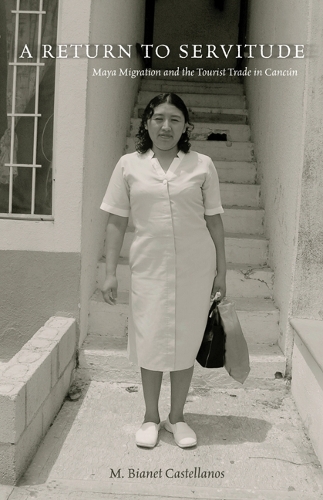
A Return to Servitude: Maya Migration and the Tourist Trade in Cancn
(Paperback)
Publishing Details
A Return to Servitude: Maya Migration and the Tourist Trade in Cancn
By (Author) M. Bianet Castellanos
University of Minnesota Press
University of Minnesota Press
10th January 2011
United States
Classifications
General
Non Fiction
Social and cultural anthropology
327.1
Physical Properties
Paperback
296
Width 140mm, Height 216mm, Spine 23mm
Description
As a free trade zone and Latin America's most popular destination, Cancn, Mexico, is more than just a tourist town. It is not only actively involved in the production of transnational capital but also forms an integral part of the state's modernization plan for rural, indigenous communities. Indeed, Maya migrants make up over a third of the city's population.
A Return to Servitude is an ethnography of Maya migration within Mexico that analyzes the foundational role indigenous peoples play in the development of the modern nation-state. Focusing on tourism in the Yucatn Peninsula, M. Bianet Castellanos examines how Cancn came to be equated with modernity, how this city has shaped the political economy of the peninsula, and how indigenous communities engage with this vision of contemporary life. More broadly, she demonstrates how indigenous communities experience, resist, and accommodate themselves to transnational capitalism.
Tourism and the social stratification that results from migration have created conflict among the Maya. At the same time, this work asserts, it is through engagement with modernity and its resources that they are able to maintain their sense of indigeneity and community.
Reviews
"Weaving Avery Gordons notion of haunting with theories of transnationalism and modernity, M. Bianet Castellanos argues that the cultural and material shifts that accompany Maya migration for work in Cancns tourism industry enable negotiation, accommodation, and even resistance to Mexicos neoliberal reforms. A Return to Servitude dismantles romantic representations of tourism and illustrates vividly how the Maya struggle to survive." Patricia Zavella, UC-Santa Cruz
"M. Bianet Castellanos introduces us to Mayas serving in the tourist meccas of the Yucatan where their ancestors built the temples and pyramids that draw people from all over the world. As they refashion their lives in the playgrounds of transnational tourists she reveals how they are acquiring new notions of personhood and gender, leaving behind the old markers of dress and language as they negotiate and sometimes resist neoliberal premises." June Nash, author of Mayan Visions: The Quest for Autonomy in an Age of Globalization
Author Bio
M. Bianet Castellanos is assistant professor of American studies at the University of Minnesota.
